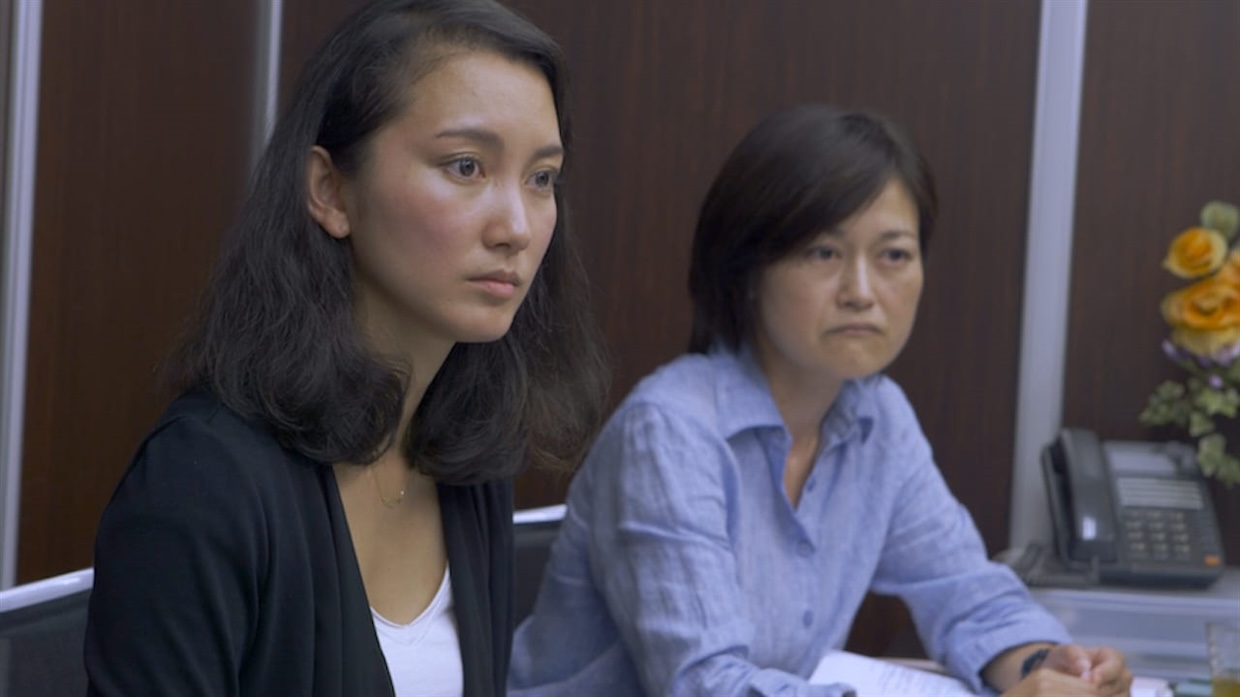 Back to selection
Back to selection
“A Deep Dive Into My Trauma”: Shiori Ito on Black Box Diaries
 Black Box Diaries
Black Box Diaries Shiori Ito’s Black Box Diaries is a film the Japanese journalist should never have had to make. Based on her international bestseller, the Sundance-premiering doc is a dogged investigation into a rape perpetrated by another Japanese journalist, Noriyuki Yamaguchi, a longtime friend of the late former Prime Minister Shinzo Abe, whose biography the offender penned as well. It’s also a somewhat surreal journey, given that the brave survivor in the purposely stalled case is Ito herself.
Through an engaging mix of secret recordings, vérité shooting and confessional video, we’re invited along on an increasingly maddening odyssey through the shockingly antiquated Japanese judicial system; exposing a hidden world where, prior to production, rape laws hadn’t been changed for 110 years. As a result the minimum sentence for rape was shorter than for theft, and was provable not by a lack of consent but only by physical violence or threats. Add to this the chances of a female officer taking on your case being next to nil (since women make up less than 8% of the force), and the fact that you’ll likely have to re-traumatize yourself by reenacting the incident with a life-sized doll for the assigned policeman, and it’s easy to see why only four percent of violated women even bother to report the crime. That is, until an undaunted reporter suddenly decided to seek justice for herself and others by documenting everything, and calling BS on it all.
Just prior to the October 25th theatrical release of Black Box Diaries, Filmmaker reached out to the gender-based human rights-focused writer and filmmaker, who in 2020 also made Time magazine’s list of 100 most influential people in the world.
Filmmaker: You wrote Black Box, a book based on this experience, back in 2017. So, why revisit the story onscreen? What does the film add to the narrative?
Ito: When I wrote my book in 2017, it was a way for me to refocus my experience as a journalist, diving into my own trauma. However, I didn’t fully embrace my emotional journey as a survivor. With this film I want to amplify the voices of survivors, not just in Japan but around the globe, encouraging all women to share their stories and reclaim their narratives.
Filmmaker: Why direct this yourself? Did you ever consider handing the project off to another filmmaker?
Ito: It was incredibly important for me to direct my own story. Too often narratives about trauma—especially those involving sexual violence—are told by others. By taking the reins, I hope to inspire others to find the strength within themselves to share their own experiences.
Filmmaker: How do all the characters—including your parents—feel about the final film? Has the perpetrator himself weighed in?
Ito: My close friends have seen the film. It was an emotional ride for them too, so we celebrated after watching it together. But my family hasn’t watched it yet. I wanted them to experience it in a theater alongside other viewers, so I didn’t send them a screener. I believe that sharing this experience with a community and in a safe space like a theater is vital, especially for a film like this. As for Yamaguchi, I didn’t send him a screener either. So, unless he happens to visit a film festival, he hasn’t seen it yet!
Filmmaker: Has the backlash to the film been the same as for the book? Do you feel any better prepared now to deal with the inevitable vitriol?
Ito: We’re starting to see some backlash, mostly coming from Japan. Since we haven’t had a screening yet it’s hard to predict the full response. I’ve taken steps to safeguard my wellbeing; I moved to Berlin last year, which has given me a sense of safety and a place to call home.
Filmmaker: Was making the doc therapeutic? Did it re-traumatize? Both?
Ito: Creating this film has been an intense eight-year journey, a deep dive into my trauma. It was definitely challenging, but once I completed it I felt empowered to share my story. This process helped me realize the strength I have in owning my narrative, and the importance of sharing my experience with others.
Filmmaker: In 2020 you made Time magazine’s list of 100 most influential people in the world. Which makes me wonder what further changes or impact you hope this film will lead to. How do you plan to go about achieving those goals?
Ito: As a storyteller I feel like I’ve done my part. Now it’s all about connecting with the audience and inspiring them to take action. The impact truly depends on how viewers engage with the film. I hope it sparks meaningful conversations about sexual violence and standing up against power. This film is a love letter to my country, my friends, my family, and to everyone around the world who has a story to tell.
